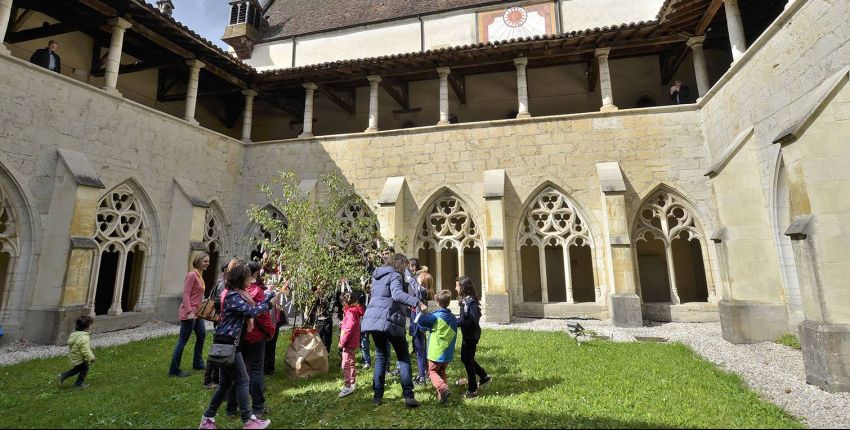As part of its work to develop its European projects, the ACCR is taking part in the project ‘People, Places and Stories’ (PPS), which is organised by Landkreis Kassel (Germany) and involves 7 other partners.
PPS carries forward the spirit of the Council of Europe’s Faro Convention on the Value of Cultural Heritage, through an Erasmus+ cooperation project based on the concept of ‘heritage communities’. The term refers to a group of people who come together around a heritage resource, either material or intangible, to ensure its collective management.
This approach to the use of heritage resources by a community is based on a vision of a space (rural or urban) as an ecosystem which connects and includes people. Heritage is no longer ‘detached’ or exterior to people, is not the product of an external entity but the result of a dialogue involving a multitude of voices and a collective memory which gives it its meaning.
Heritage communities can have a real impact on society. PPS encourages the participation of civil society in order that local heritage can be viewed as a resource for sustainable development.
‘People, Places and Stories’ is a cooperation project based on relationships between people, places and their stories.
The work in progress
The objective is to update the skills necessary for heritage communities to work together.
It is intended to create a training programme for those undertaking projects in order to increase their number and quality, in line with the action plan of the Convention.
The mission of PPS is therefore based on the collation and analysis of good practice and is aimed in particular at heritage professionals, mediators, facilitators, trainers, political decision makers, civil society and local communities.
The ACCR is involved at every stage of the project and particularly in the communication of results, which will take place as part of an open meeting at the end of the project, during 2022, at one of the network’s CCRs.
The PPS project also takes into consideration the results of previous Erasmus+ partnership projects such as Delphi, Badges, Sherazade and Reveal.
The project is led by Landkreis Kassel (Germany) in partnership with University College London (UCL, UK), Blended Learning Institutions Cooperative (Germany), the Federation for European Storytelling (EU), PLATform Opleiding, Onderwijs en Organisaties BV (Plato) (University of Leiden, Netherlands), Smart Revolution Srl (Italy) and the University of Salento (Italy).
About the Faro Convention
The Council of Europe’s Faro Convention on the Value of Cultural Heritage for Society was adopted 2005 in Faro, Portugal, and came into force in June 2011 for the 20 countries that had ratified it. It seeks to enlarge the definition of ‘heritage’, placing at its centre the people who live in a place and see themselves as part of its shared history. It is linked to people’s memories and their experiences and is embedded in collective discourse and in a shared life story.
‘The Convention encourages us to recognize that objects and places are not, in themselves, what is important about cultural heritage. They are important because of the meanings and uses that people attach to them and the values they represent.’ (Council of Europe website)
New practices can be employed to ensure the inclusion of all social stakeholders in the management of a heritage site or place of historical interest. The dynamics of decision making in civil society can provide a driving force to mobilise inhabitants to engage with and protect their heritage. This is not restriced to the inhabitants of a place but can involve anyone who feels an affinity with its story and values.
Civil society plays a vital role in tackling the challenges and problems of a heritage site and in the representation and diffusion of a culture.
To apply these principles, the Convention has an Action Plan whose primary focus is a better understanding of the challenges they present and the facilitation of their implementation.
The Faro principles have already been put into practice in projects centred on the themes of inclusion, sustainable tourism, and the understanding and restoration of heritage – whether this be in Romania, Italy, Serbia, France, Spain or Lithuania.

